Looking for a gentle deodorant with 24-hour odor protection, look no further than Ivory deodorant. With summer rolling in, pits get a little sweatier even with the slightest physical activity or rest (after all, some people sweat in their sleep). Now, sweating isn’t a bad thing or a social faux pas. Instead, it’s the smell that’s offensive (pun intended).
Sweating is a normal body function that helps bring about homeostasis. However, people get embarrassed from sweating profusely or developing body odor from sweating. Thankfully, there are ways to resolve these issues without becoming a social pariah.
Why Do We Sweat?
Sweat is your body’s way of cooling down, like how you change the water of an overheating car. When your body senses overheating, it produces sweat that cools down the body when it evaporates. During physical activities, your muscles get exercised, which generates heat, and your body sweats to cool down.
You can wear sweatbands during physical activities to prevent sweat from getting into your eyes or sabotaging your grip. Sweat is composed chiefly of water, but it can taste a little salty depending on what gland it’s coming from. sweat from eccrine glands tastes salty due to bits of salt, protein, urea, and ammonia mixed in it.
The other gland that produces sweat is the apocrine gland. They become mainly located on the armpits, groin, and breast area. Pure sweat on its own is odorless. It’s the excrement from when the bacteria on our skin break down the sweat that leads to odors. As you’ve noticed, the smell mostly comes from our pits. Thus, we put deodorants on our armpits and not our entire bodies.
But regulating body temperature isn’t the only reason we sweat. After all, some people sweat out of nerves. People also sweat when anxiety kicks in as a flight or fight response.
Things That Can Cause You to Sweat More
Spicy food: Spicy food containing capsaicin, like red pepper, trick your brain into thinking there’s an increase in body temperature, therefore triggering sweat production. Now you know why you wear it when you eat spicy food.
Food allergies: Food allergies or particular food intolerances can lead to sweat production when eating.
Hormones: Your hormones can trigger your sweat glands to start producing sweat. Certain emotions like anger, love, nervousness, etc., are controlled by hormones and the release of chemicals that can trigger your sweat glands to produce sweat.
Overeating meat: This gets popularly referred to as meat sweat. When some people eat so much meat, their metabolism works hard to break it down, spending a lot of energy and thus increasing the body’s temperature.
Alcohol: Consuming large amounts of alcohol can speed up your heart rate and dilate blood vessels during physical exercise. Your brain might get tricked into thinking you’re performing exercises and then stimulates your sweat glands to produce sweat to cool off.
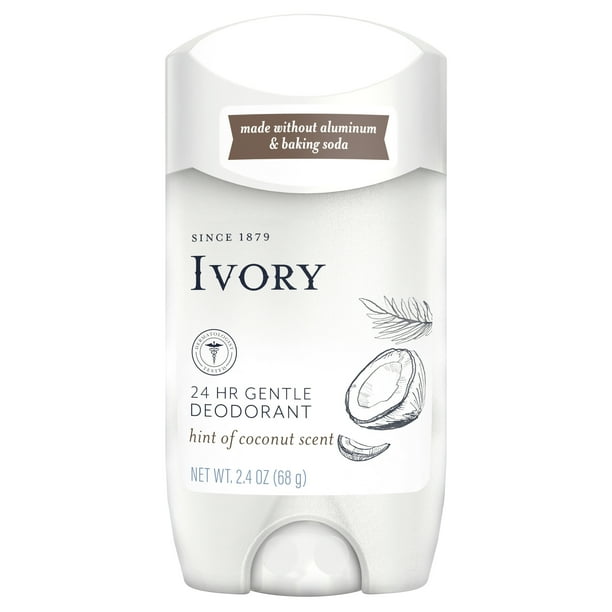
Genetics plays a role in how much you sweat
The amount of sweat you produce is dependent on your genetics. Hyperhidrosis, a medical condition that causes someone to sweat more than the average person, is sometimes a result of genetics. People with this condition sweat approximately four times more than their body needs to cool down.
On the other end of the spectrum is hypohidrosis, a medical condition that causes people to sweat less than the average person. This condition is also sometimes due to genetics, but other factors like medication used to treat nerve damage and dehydration could also cause it.
Then there’s the genetic disorder called trimethylaminuria. This is when your sweat smells like fish or rotting eggs. So, since sweating is a natural phenomenon and has a repulsive smell, manufacturers thought of ways to fix that problem by bringing deodorants and antiperspirants to life.
Are Antiperspirants and Deodorants the Same?
Not at all. As the name suggests, deodorant eliminates or masks the odor associated with sweat. On the other hand, antiperspirant blocks your pores and reduces the amount of sweat let out.
Antiperspirants
Large patches of damp clothes don’t quite appeal to many people. Some are embarrassed by the dark patches. It’s nothing to feel embarrassed about, but antiperspirants are your best choice if you want to decrease wetness. Antiperspirants come formulated with aluminum-based compounds like aluminum chloride, aluminum zirconium, and aluminum chloral hydrate.
The aluminum salt dissolves into the skin when applying the antiperspirant to your armpits. When the aluminum salt gets in contact with sweat, it creates a gel-like substance that temporarily plugs your sweat duct, preventing the sweat from reaching the surface of your skin. Aluminum also inhibits the bacteria that feed on your sweat, thus reducing body odor.
Is topical aluminum harmful?
There has been a lot of buzz concerning aluminum in antiperspirants. Some people claim since it blocks your sweat pore, it prevents your body from releasing toxins. Others say there’s a connection between aluminum antiperspirants and breast cancer. But how much of these hold weight? Let’s find out.
Contrary to popular belief, the human body does not excrete toxins through sweat pores. The liver is responsible for detoxification, and we pass toxins out of the body through the kidney. As for the news about aluminum antiperspirants causing breast cancer, there has been no concrete evidence that links breast cancer to the use of aluminum antiperspirants. Aluminum salts are not carcinogenic.
Deodorants
Unlike antiperspirants, deodorants don’t have aluminum in them. Thus they don’t reduce the amount of sweat produced. Deodorants are skincare products that eliminate sweat odors. They are usually alcohol-based and work by creating a more acidic environment on your skin, therefore preventing the growth of the bacteria that leads to the smell.
Which Should You Get?
Both do the work of making you smell good and less self-conscious. However, if the amount of sweat you produce bothers you, antiperspirants are your best choice. Otherwise, high-quality deodorants are excellent at keeping you fresh all day.
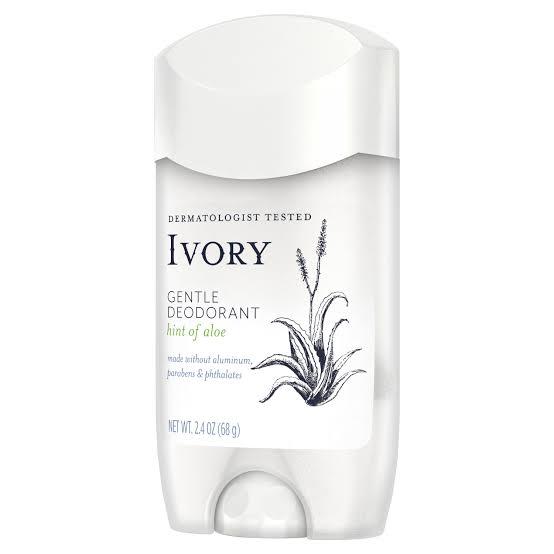
What to Look for When Shopping for Deodorants
1. Look for deodorants that are safe for your skin.
Some deodorants come formulated with metals and harsh chemicals that can cause severe allergies to your skin. Applying these deodorants to your skin may lead to rashes and redness.
When picking out deodorants, please go through the ingredient list to confirm it doesn’t contain chemicals you’re allergic to. Ivory deodorant is gentle on the skin and lacks paraben, which is known to cause skin sensitivity and allergies.
2. Deodorants with beneficial active ingredients
While the primary purpose of a deodorant is to eliminate sweat odors, some deodorants do more than that. Deodorants with active ingredients like aloe and shea butter help moisturize and regenerate your skin to keep your armpits smooth and irritation-free.
3. Deodorants that keep your underarms silky smooth
Shop for high-quality natural deodorants as they’ll keep your arm silky smooth and have an excellent glide.
4. Look for long-lasting deodorants.
Having to restock your deodorants every two weeks will become a bother. Go for a deodorant that is guaranteed to last a long time—at least 2-3 months.
5. Aim for a deodorant without baking soda if you have sensitive skin
Stay away from deodorants with baking soda in their ingredients list if you have sensitive skin. Though baking soda has antimicrobial properties and neutralizes pH, thus eliminating odor, it can react terribly with sensitive or dry skin.
Baking soda is considered one of the significant causes of redness and irritation in natural deodorants. Choose baking soda-free deodorants, like ivory deodorant, formulated with a naturally derived dead sea salt.
6. Deodorants that last more than a couple of hours
Of course, it’s alright to do a minor touch-up as the day goes by to keep yourself fresh, but you shouldn’t be worried about stinking the whole place because your deodorant lasts only a couple of hours. Go for deodorants that do their job for longer than a couple of hours, especially if you’re a busy person and won’t be able to touch up during the day.
That’s why Ivory deodorant makes an excellent choice. It’s proven to have 24-hour odor protection, so even if you’re too busy to reapply, you don’t have to squeeze down your arm and hope they can’t smell you whenever someone comes close.
7. Choose a deodorant that doesn’t leave stains.
No, not the typical white trail marks. I’m talking about the ones that ruin your white, yeah, those. Contrary to popular belief, the stains you find after using some deodorants, even after washing your clothes, aren’t from sweat. Well, not sweat alone.
The pigments are from the reaction of aluminum or other ingredients found in the deodorant. So, yes, some deodorants cause stains, and you should stay away from them when choosing the best deodorant for yourself.
Conclusion
Sweating isn’t terrible, and you shouldn’t have to feel self-conscious about it, and with Ivory deodorant, you won’t. Ivory deodorant is formulated with all the right ingredients to be gentle on your skin while removing odor and lasting 24 hours. It is paraben-free and baking soda-free which is excellent for sensitive and dry skin.
You may also like to read:
–Does Deodorant Expire: Here Are The Best 17 Deodorants For Women
–Karma Spa: A Guide To Their Facials, Massage, And Specials
–Shampoo Alternatives: Can You Use Body Wash As Shampoo?

















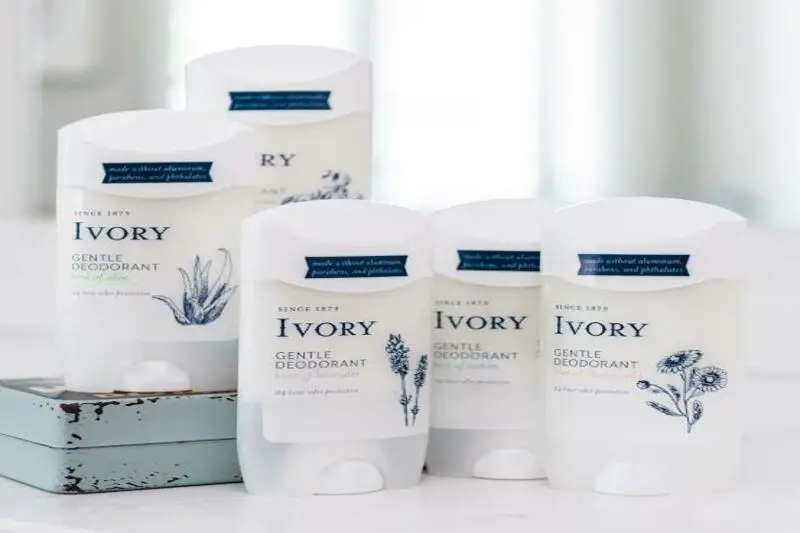

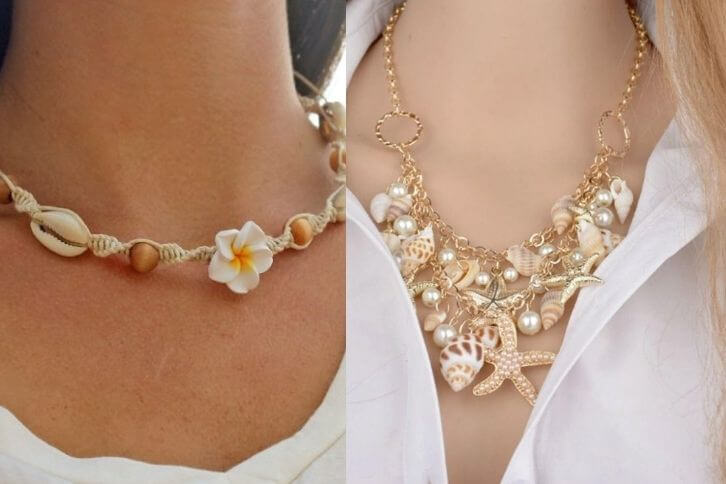

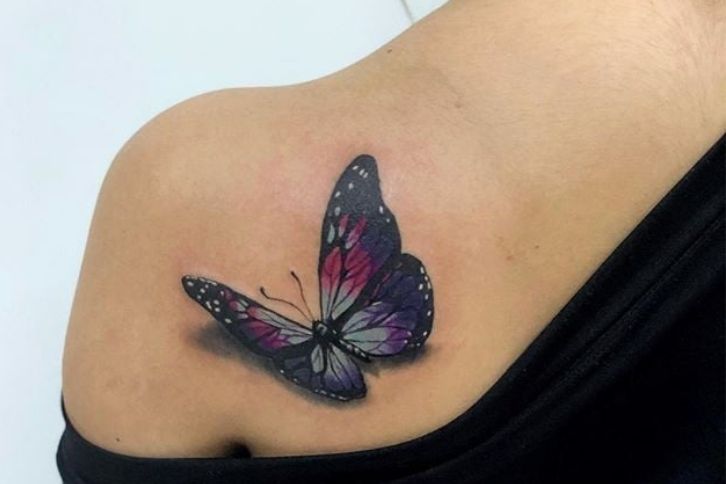
About Me
Fashion & Beauty Enthusiast
Hi, I'm Fanti. I'm a fashion, beauty, and lifestyle enthusiast, and the ultimate curves queen. Here, I share beauty, fashion, and lifestyle tips to teach, inspire, and give confidence to all women.